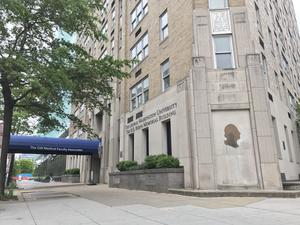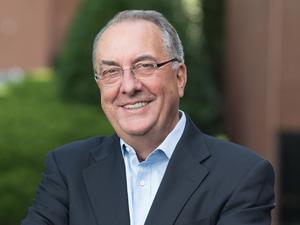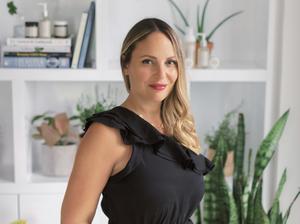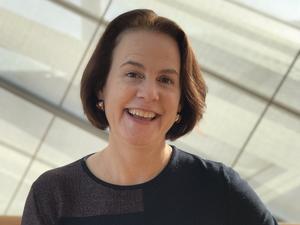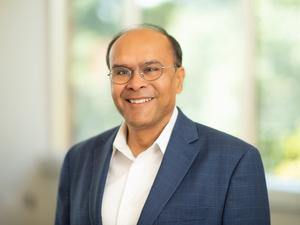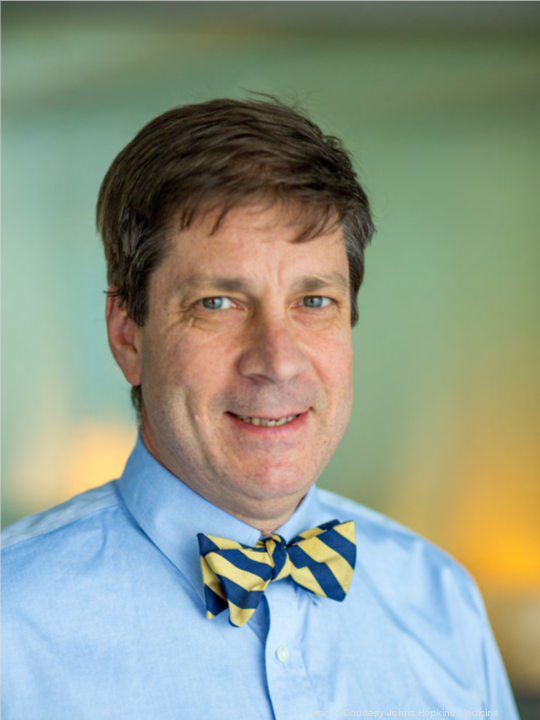
Johns Hopkins Medicine is moving forward with clinical trials for a potential coronavirus therapeutic at sites across the country, including two in the District.
The Baltimore-based health system is studying convalescent blood plasma as both a treatment and defense against Covid-19, after filing its investigational new drug application with the Food and Drug Administration in the spring. But “we quickly saw that we can’t do it by ourselves,” said Dr. David Sullivan, professor of molecular microbiology and immunology at the Johns Hopkins School of Medicine. “We need to utilize sites all over the country.”
Sullivan, principal investigator of the studies, and his team tapped MedStar Georgetown University Hospital and MedStar Washington Hospital Center in D.C. as two of the outlets where the trials and recruitment are now underway.
“We think this will change the trajectory of the pandemic when we finally have an outpatient therapy available that’s validated,” Sullivan said. After a possible regulatory approval, he said, the therapy “can be rapidly ramped up because there are convalescent plasma units that are available throughout the United States, so this is something that can be implemented as soon as we show efficacy.”
An outpatient therapy
It’s the first such trial to examine the effectiveness of blood plasma as an outpatient therapy for coronavirus, according to Hopkins. Whereas hospitals have used the approach for admitted patients, “that’s sort of rescuing people at death’s door, which is very important and we do need that, but the whole purpose of this is to prevent them from going to the hospital in the first place,” Sullivan said. The same antibody dose will “do a lot more early in the disease process where there’s less virus, less disease and we can douse the viral flames within the first couple of days of illness — that’s the whole principle,” he added. “So that’s how it’s really different.”
The therapy would aim to treat Covid patients within the first week of infection, after which 20% of patients otherwise worsen and require hospitalization, Sullivan said. “That’s the real rationale: hitting them early with a lot of antibodies and then we’re preventing the people from progressing in their illness.”
The therapy involves a transfusion of blood plasma from people who have survived Covid-19. It contains thousands of antibodies that target the virus and provide immunity for three to six weeks.
That temporary and immediate immunity is unlike what comes from a a vaccine, which may take at least a month for what’s called “active immunity” to develop, and unlike a drug, which requires multiple doses. It could benefit both people who have contracted the virus and those who have had exposure; for instance, essential workers or parents whose children test positive and who need to protect themselves.
And it has the potential to move transfusions from hospitals to physician offices and urgent care centers, Sullivan said. In addition to protecting people from the disease’s effects, he said, the goal is to “get society functioning again.”
What it costs
Hopkins is funding the trials with $3 million from Bloomberg Philanthropies, $1 million from the state of Maryland, $1 million from the National Institutes of Health’s National Institute of Allergy and Infectious Diseases and $35 million from the Department of Defense.
Enrollment in the District and across all sites — from California and Florida to parts of New England — should finish in December or early January, which could allow for results in early 2021, Sullivan said. Specifically, Hopkins is looking for about 1,000 volunteers who have tested positive for Covid-19 within five days and have symptoms but have not been hospitalized for the treatment study. The health system is also looking for 500 asymptomatic individuals who have been in close contact with those who recently tested positive for the infection prevention study. Interested participants, who would be compensated, can pursue enrollment here or call 888-506-1199.
“I’m just amazed at how everyone is working together to come up with a solution in a creative fashion, but we still do need people to utilize their illness to be a part of the solution,” Sullivan said. The therapy has demonstrated safety during pregnancy and for people with existing medical conditions, he added.
The effort comprises up to 400 people around the U.S. Sullivan leads a core team of about 40 people, including 15 Hopkins leaders. He stepped away from his work overseas on malaria to take over this program, he said. It’s also personal. He encouraged his brother, who is in his 50s, to sign up for the trial when he tested positive for Covid-19. He has since recovered.
“In some respects, I’m doing it for my 80-year-old parents — what if they get it? Right now, there’s nothing to do and this is what I’m working on,” Sullivan said. “In some respects, yeah, we’re working on it for the people we love.”
